What is the Best Concealed Carry Caliber?
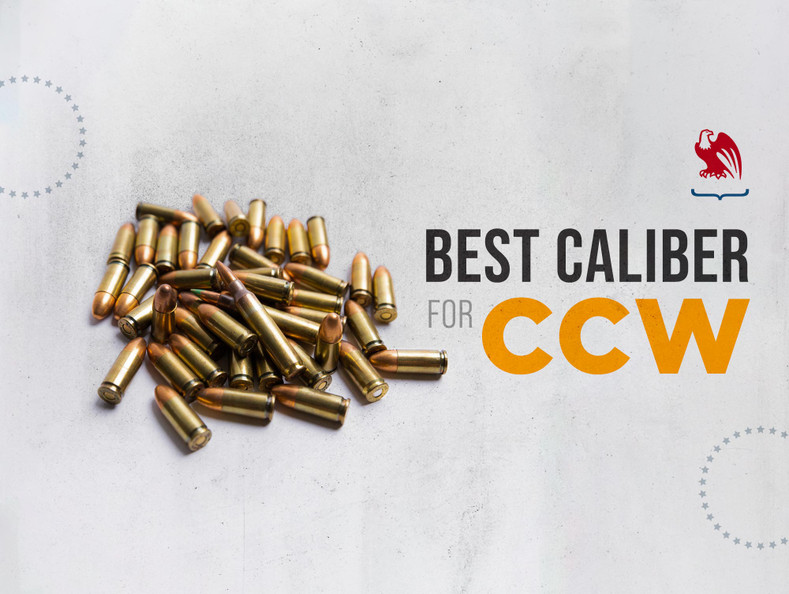
Handgun caliber, or the size of the bullet, is just one of the many factors you should keep in mind when choosing a firearm for self-defense.
But which calibers are best, and how do you know which is right for you?
There is no one, single caliber that’s best for self-defense. The best concealed carry caliber for you depends on your preference in terms of stopping power, capacity, action, and recoil, among other factors.
To help you determine which is right for you, we’ll talk about what exactly the term “caliber” means, the importance of stopping power, and then jump into the details about some of the most common calibers used for self-defense.
What is the Definition of ‘Caliber?’
Before we jump into the ins and outs of the different calibers used for concealed carry, let’s quickly define what a “caliber” is in the first place for those who are new to the concept.
When talking about caliber in guns, we’re referring to the diameter of the interior of the barrel. The term also applies to the diameter of a bullet (the projectile at the tip of a cartridge), which is how you know what ammo to put in a gun.
Caliber is measured in either metric or Imperial measurements depending on where it was made, which is why you’ll see numbers ranging from 9mm to .45. As you’ll learn next, even small variations in size make a big difference when it comes to the effectiveness and accuracy of a bullet.
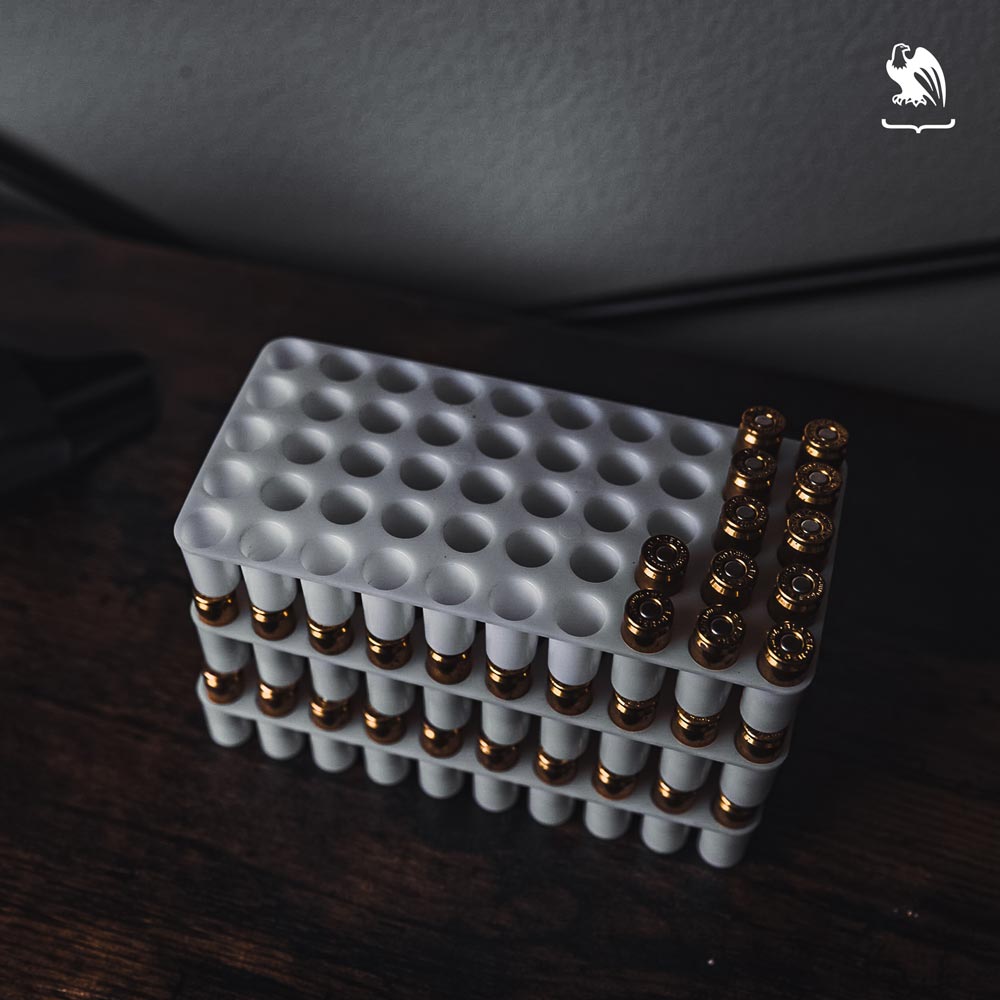
Stopping Power
In firearm circles, you will often hear the term “stopping power” used to describe why one round is better than another.
Specifically, this discussion will come up a lot in debating between 9mm and .45ACP, with proponents of the latter making the case that the .45 has more stopping power than the 9mm.
We want to address this misconception early on by way of some clear definitions. The best, measurable, analog for “stopping power” is the kinetic energy that a bullet has when it leaves the muzzle of a firearm. That is determined by two things: muzzle velocity and the weight of the bullet.
Speed directly relates to energy: the faster something is going, the more kinetic energy it has. Weight works similarly: at the same speed, a heavier object will have more kinetic energy than a lighter one.
There are two common ways to achieve sufficient kinetic energy to stop a human-sized threat. The first is a small bullet moving very quickly, and the second is a larger bullet moving less quickly.
If you want to do some of your own calculations to see what the bullet energy, or muzzle energy, is for a particular round, this handy calculator is a great tool!
Common Calibers for Self-Defense
There are lots of well-made and reliable calibers of bullets out there. Historically, some concealed carry handguns have been quite small in caliber, with .22 long rifle and .32ACP being common choices over the early 20th century.
With that in mind, because both of those bullets are so small, they would have to be moving very fast to be effective. Neither cartridge is commonly loaded to make them capable self-defense rounds. Thus, the .380ACP, also called 9mm Kurtz (German for “short” if you happen to have a Walther PPK chambered in .380!) is often considered the minimum caliber for self-defense. So, we’ll start there!
We do want to note that the data presented below is in general terms: always check with the manufacturer about specific cartridges for the most accurate information, which is usually listed right on the box of cartridges. With that being said, let’s get started!
.380 ACP.
The .380, which is often considered the minimum caliber for self-defense, has been around for over a century. In that time, it has become one of the most popular choices for smaller handguns.
Out of a 3.75-inch barrel, common loadings of the .380 usually have between 200-300 ft-lbs of muzzle energy, which is more than enough to be lethal. With that in mind, the shorter barrels of many small pistols combined with the relatively low weight of most .380 loadings mean that the accuracy of the .380 is not always something to count on beyond about 25 yards.
9mm
9mm, also known as the “9mm parabellum” or by its common measurements, 9x19mm, is perhaps the most popular cartridge on the planet for handguns.
This caliber was one of the first modern pistol cartridges, explicitly designed to work in semi-automatic handguns loaded through box magazines. That popularity has only grown since its introduction in 1901 – if we listed every 9mm handgun here, this article would likely take several days to read!
9mm has a little more muzzle energy than .380, with most common loadings of 9mm having somewhere between 300-500 ft-lbs of muzzle energy out of a 4” handgun barrel. This makes 9mm more lethal at longer ranges than the .380.
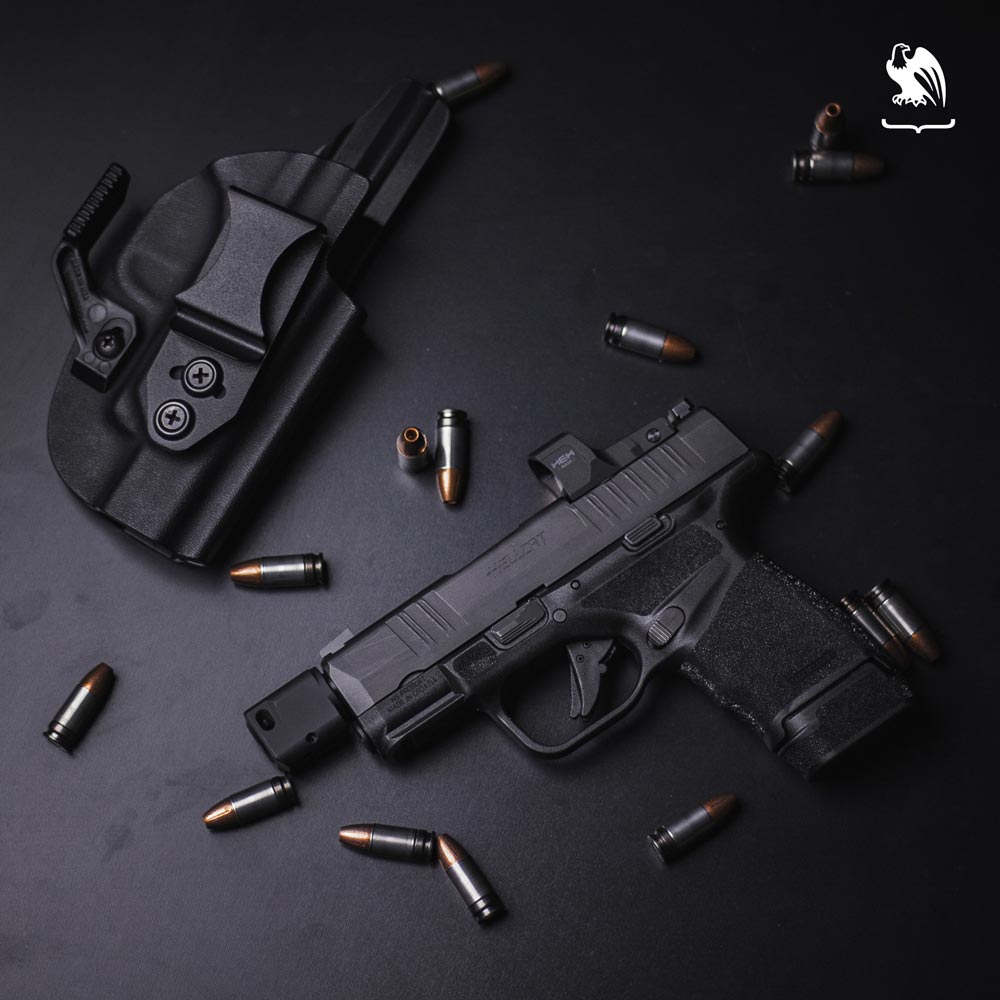
.45
.45ACP, or simply .45, has long been the assumed top choice for concealed caliber cartridges in terms of “stopping power.” The math on this does not quite hold up in making that claim, however. While .45 cartridges vary widely in their muzzle energy, most are actually in the same range as 9mm cartridges.
Here’s the big tradeoff: for the same muzzle energy as 9mm, .45 cartridges tend to have larger, slower-moving projectiles. Of course, the .45 is still more than adequate for most concealed carry uses, but the fact that it’s moving slower than an equivalent 9mm cartridge in terms of energy means that the .45 loses out on range slightly.
.357 Magnum
If revolvers are more your speed, then you may want to consider using a .357 Magnum for concealed carry. Out of a 4” barrel, many commercial loadings of this cartridge put out 500-800 ft-lbs of muzzle energy. That’s double the energy of some .380 loadings, and, often, with similar capacity!
The tradeoff for that impressive amount of energy from a projectile that is both large and fast-moving is recoil: anyone who is not willing to practice, or has hand problems, might want to consider options a little less powerful than the .357 as a defensive caliber in a handgun.
FN 5.7x28mm
All the calibers we’ve discussed so far were designed over a century ago, but we don’t want to give the impression that nothing changes in the cartridge world. So, to include a more contemporary offering, consider the FN 5.7x28mm.
FN designed this cartridge specifically to penetrate body armor in their P90 platform and accompanying FiveSeven pistol. So, the muzzle energy, roughly equivalent to most 9mm cartridges, only tells part of the story here: these bullets are small but fast-moving, and specifically designed to penetrate armor.
Since it’s a relatively new cartridge, it is expensive, as are the pistols that fire it. But this is beginning to change, with the introduction of new models that fire the round, including a few from Ruger.
What’s the Best Caliber Handgun for Concealed Carry?
While we wish it was that easy, there is no one right or wrong answer when it comes to choosing the best caliber for concealed carry. It all comes down to your personal preference and specific needs.
All of the above calibers make excellent concealed carry rounds. The best way to determine which is the best for you is to think about the size and type of gun you want to carry, how and where you plan to carry it, and how much recoil you’re willing to live with.
One of the best ways to figure out which is the best concealed carry caliber for you is to simply try a few out to get a feel for what you’re comfortable with. Many shooting ranges allow you to rent various guns so you can see for yourself what the difference is in terms of recoil, accuracy, and stopping power.
To help you determine which is the best for you, here are a few other factors to consider when choosing a handgun caliber.
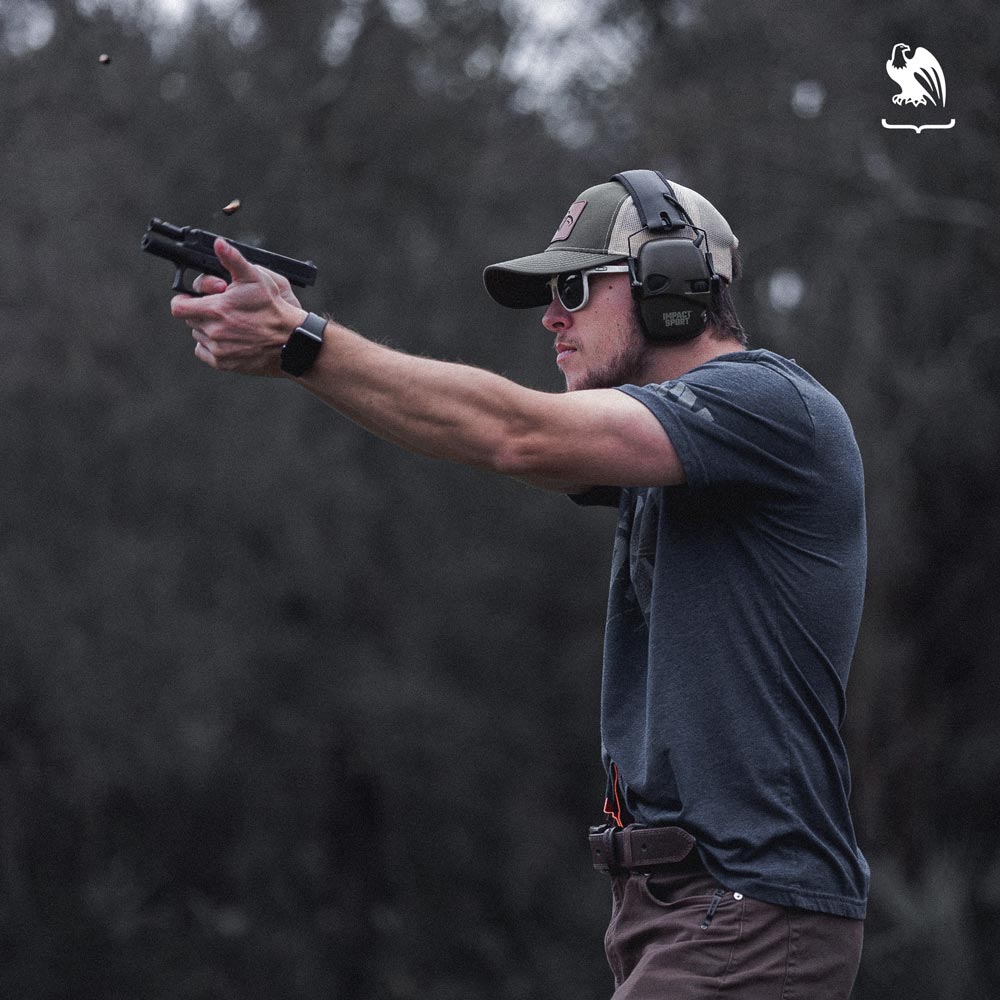
Other Important Considerations
Barrel Length
One of the major parts of the kinetic energy equation is velocity. Generally, the longer a firearm’s barrel, the more velocity you can expect with a given handgun cartridge. In ballistic terms, the best caliber handgun for concealed carry depends on not just the caliber of the round itself, but the length of the barrel that the round is coming out of.
Of course, carrying a handgun with a 20” barrel would be impractical, so you have to decide how short of a barrel is appropriate for you to conceal, while also giving the cartridge the best chance at performing ballistically.
Action Type and Capacity
Among newer handguns, you’re likely to find two kinds of action: revolvers and semi-automatics.
Revolvers have the upside of being very easy to understand mechanically and have fewer moving parts that might cause malfunctions. The downside is typically capacity: many revolvers in .357 magnum only hold five rounds.
Semi-automatics are fed from box magazines, and, in the case of many contemporary models, can hold upwards of 20 rounds. This increase in capacity means a massive increase in firepower for self-defense, but also means slightly more complicated machinery involved as well.
The choice between the two is a matter of both taste and legality: pick the gun that you’re allowed to own in your area, and that you would enjoy shooting.
Size
While longer barrels usually mean better ballistic performance, the downside is that the longer the barrel is on your concealed carry firearm, the harder it is to conceal and the heavier it is.
Thus, whatever caliber you pick, you should choose a gun that is small enough that you can carry it without it being too heavy and uncomfortable. Also, larger guns tend to “print” more, meaning they’ll be easier to see through clothing. Small guns, on the other hand, print less but also have less barrel length and are generally harder to control thanks to their smaller grips.
Here, compromise is key, and we recommend at the very least going to a local gun store to see which handguns of your preferred caliber feel good in your hand.
Training & Budget
The caliber of your handgun does not matter at all if you cannot reliably hit your target. Training is absolutely key to success in any self-defense scenario: you do not want the first time you fire your chosen caliber to be in the most stressful situation imaginable.
Here, economics plays a factor as well. Considering that 9mm, for example, is about half the price of 5.7mm, the former might be a much more attractive caliber to someone with a limited training budget.
Ultimately, we recommend picking a caliber and a firearm that you want to shoot and going to the range often to stay up to speed on your skills with it. Hitting a target with a .380ACP far beats missing the target with 6 rounds of .357.
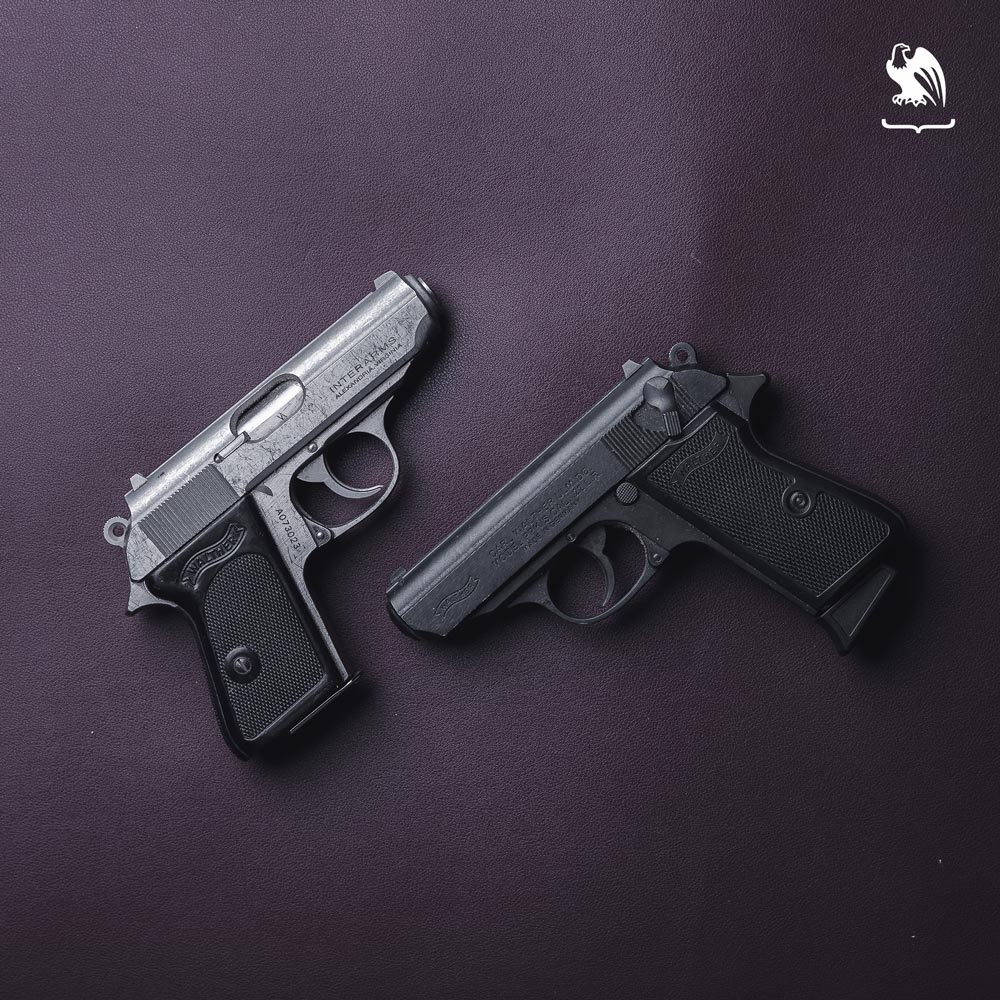
Summary
To directly answer the question that brought you to this article: there is no one best caliber for self defense. Instead, the gun with the best concealed carry caliber for you is a gun that you shoot well, are comfortable carrying, and will practice with.
Several modern calibers are more than up to the task in terms of ballistics: the list that we give above is just a small sample of the several options that are available to us. The main choice then, is a personal one that is best made through trying out as many firearms as possible. Borrowing guns from friends or family is a great idea to try out at the range, and many ranges rent firearms for this exact reason.
Whatever you end up choosing as your caliber for concealed carry, you should make sure that you have a holster that’s safe, durable, and allows for a smooth, fast, and efficient draw.
If you’re looking for a new IWB, OWB, or pocket carry holster, visit our Holsters by Gun Model page for Kydex holsters that are custom-made for your weapon of choice.
Interested in items beyond holsters? Check out our Resources Page for links to recommended products like lights, lasers, first aid, maintenance, and more, and browse our selection of apparel, and accessories at our website, vedderholsters.com.
To stay up-to-date on all the latest Vedder Holsters content and offerings, check out our blog and follow us on Facebook, Instagram, and Twitter. And be sure to visit our sister company, GeoGrit, for all of your American-made minimalist wallet needs.
